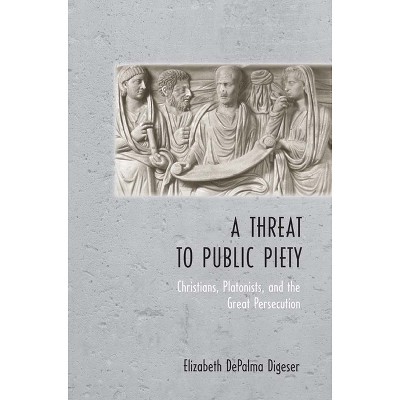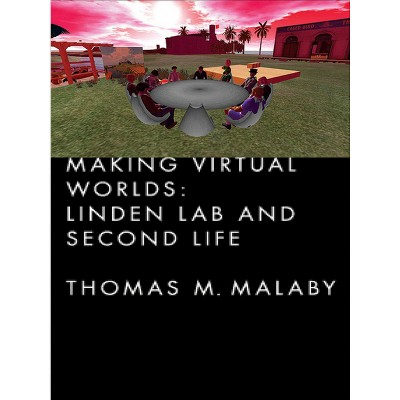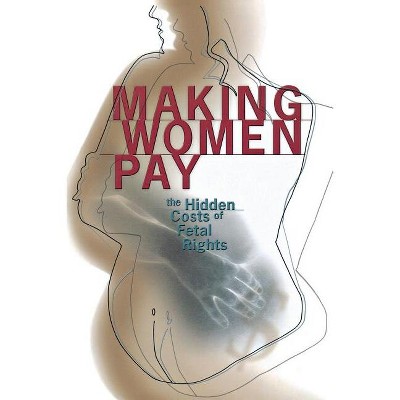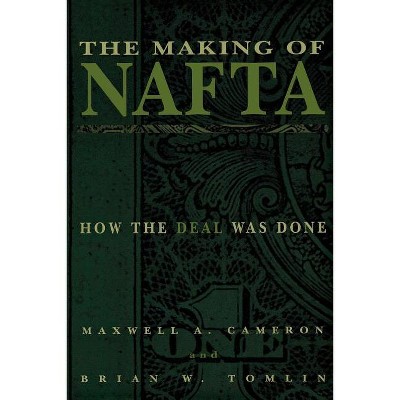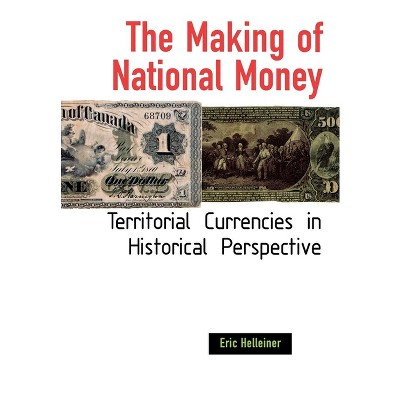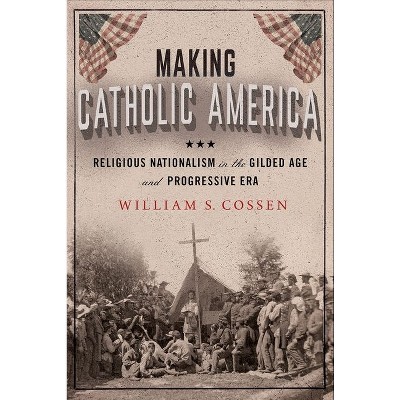The Making of a Christian Empire - by Elizabeth Depalma Digeser (Paperback)

About this item
Highlights
- The work of the Christian scholar Lactantius provides an ideal lens through which to study how Rome became a Christian empire.
- About the Author: Elizabeth DePalma Digeser is Professor of History at the University of California, Santa Barbara.
- 218 Pages
- Religion + Beliefs, Christianity
Description
About the Book
The work of the Christian scholar Lactantius provides an ideal lens through which to study how Rome became a Christian empire. Elizabeth DePalma Digeser shows how Lactantius' Divine Institutes--seditious in its time--responded to the emperor...
Book Synopsis
The work of the Christian scholar Lactantius provides an ideal lens through which to study how Rome became a Christian empire. Elizabeth DePalma Digeser shows how Lactantius' Divine Institutes--seditious in its time--responded to the emperor Diocletian's persecution and then became an important influence on Constantine the Great, Rome's first Christian emperor.
The Making of a Christian Empire is the first full-length book to interpret the Divine Institutes as a historical source. Exploring Lactantius' use of theology, philosophy, and rhetorical techniques, Digeser perceives the Divine Institutes as a sophisticated proposal for a monotheistic state that intimately connected the religious policies of Diocletian and Constantine, both of whom used religion to fortify and unite the Roman Empire. For Digeser, Lactantius' writings justify Constantine's own attitude of tolerance toward pagans and casts light upon other puzzling features of Constantine's religious policy. Her book contributes importantly to an understanding of the political and religious tensions of the early fourth century.
Review Quotes
The Making of a Christian Empire is original, challenging, and persuasive. Moreover, beyond contributing to our evolving understanding of the Constantinian age, Digeser's study also has the power to make us question anew the true nature of pagan inclusiveness and the origins of Christian intolerance.
-- "Church History"Digeser offers a fresh reading of Lactantius's Divine Institutes, considering its historical, rather than essentially theological value in the political and philosophical contexts of the late roman empire... Clearly argued, Digeser's provocative study offers additional insights into the complexities of imperial-Christian relations in late Antiquity, particularly of Constantine's religious policy, and should appeal to any reader interested in this critical period of transition.
-- "Religious Studies Review"Digeser seeks to answer the mystery of how the Roman Empire changed from persecution of Christianity to toleration in six short years (305-311)... She is at her best in tracing the parallels between Porphyry's attack on Christianity, Constantine's rhetoric of support, and the text of Lactantius's Divine Institutes. Her text sparkles as she demonstrates how different versions of monotheism... could be used in support of not only different theologies but also different modes of civil governance... Her book as well as the massive bibliography by Jackson Bryce bode well for a new look at Lactantius.
-- "Theological Studies"Digeser... proffers an interesting and controversial analysis of the Divine Institutes of Lactantius in The Making of a Christian Empire. Historians of early Christianity will welcome this detailed treatment of the Institutes of Lactantius in the English language, and will appreciate this thorugh assessment of that work within the religious debates of the fourth century.
-- "The Catholic Historical Review"In this richly textured study... Digeser constructs a challenging and... convincing picture of the tumultous first decades of the fourth century CE.... Even though this work will appeal mostly to those interested in historical and theological developments of this period, Digeser has done all she can, especially through her thorough discussions of bibliography, to make it accessible to the widest possible audience. Highly recommended.
-- "Choice"This book is a first-class piece of historical scholarship, one with something to say to the specialist but fully accessible to the more generally informed reader as well.
-- "Speculum"To write a book like the present one, an author must be willing to believe that ideas make history--perhaps, indeed, that nothing changes history so much as an idea.
-- "American Historical Review"About the Author
Elizabeth DePalma Digeser is Professor of History at the University of California, Santa Barbara.
Shipping details
Return details
Trending Poetry






